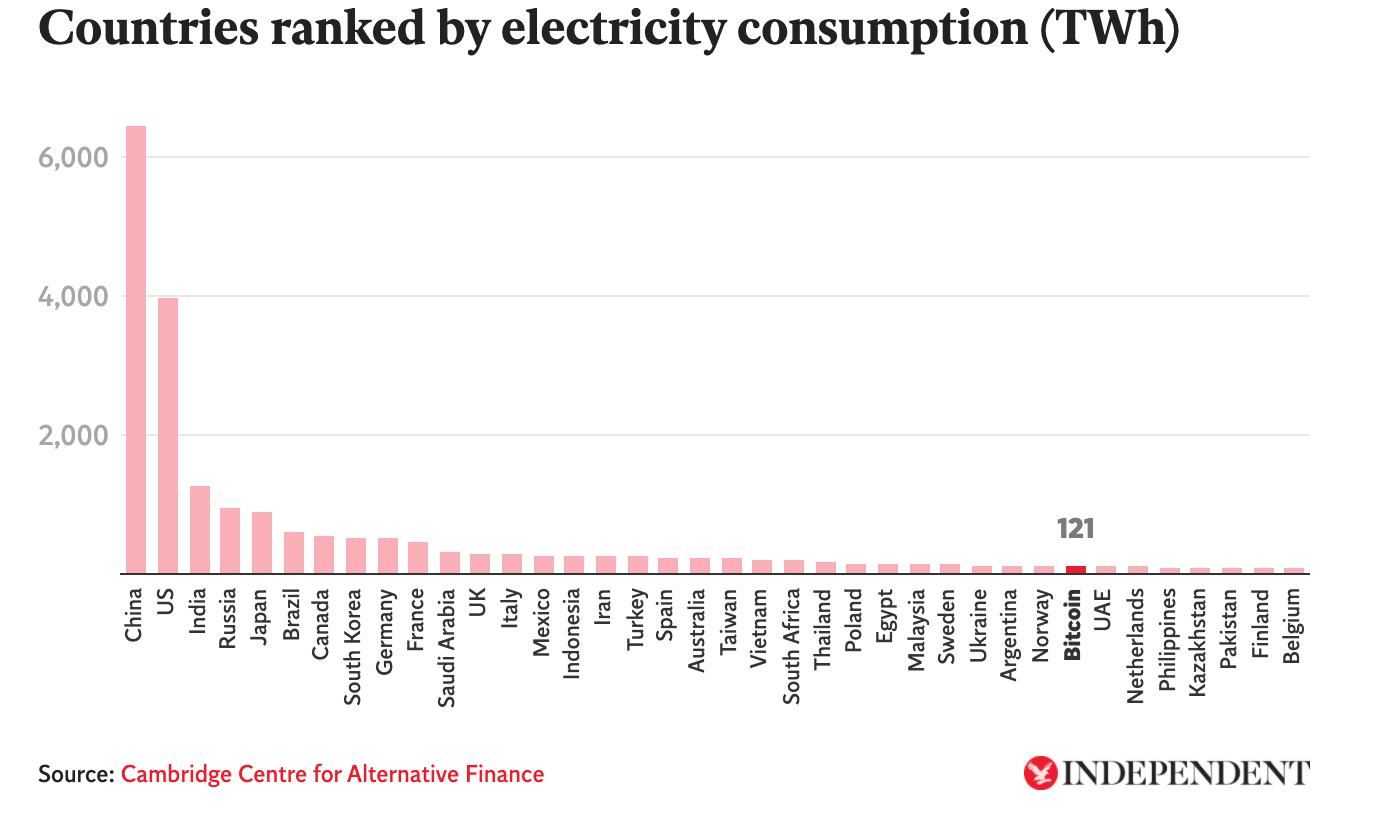Bitcoin mining in China will exceed energy consumption of 181 countries by 2024, study warns
Annual energy consumption will be at level of Italy and Saudi Arabia, according to researchers

Your support helps us to tell the story
From reproductive rights to climate change to Big Tech, The Independent is on the ground when the story is developing. Whether it's investigating the financials of Elon Musk's pro-Trump PAC or producing our latest documentary, 'The A Word', which shines a light on the American women fighting for reproductive rights, we know how important it is to parse out the facts from the messaging.
At such a critical moment in US history, we need reporters on the ground. Your donation allows us to keep sending journalists to speak to both sides of the story.
The Independent is trusted by Americans across the entire political spectrum. And unlike many other quality news outlets, we choose not to lock Americans out of our reporting and analysis with paywalls. We believe quality journalism should be available to everyone, paid for by those who can afford it.
Your support makes all the difference.Carbon emissions from Chinese bitcoin mines are accelerating rapidly and will soon exceed energy consumption levels of Italy and Saudi Arabia if urgent action is not taken, a new study has warned
Bitcoin mining involves solving complex puzzles that require vast computing power, meaning operations are generally located in areas where electricity is cheap.
Coal-heavy regions of China have therefore attracted bitcoin miners in recent years, with the study estimating that more than 75 per cent of global bitcoin operations took place there as of April 2020.
Unchecked, the annual energy consumption of the bitcoin industry in China will peak in 2024 at 297 Twh, according to the Chinese Academy of Sciences researchers involved in the study.
“This exceeds the total energy consumption level of Italy and Saudi Arabia and ranks 12th among all countries in 2016,” the study stated.
“Correspondingly, the carbon emission flows of the bitcoin operation would peak at 130.5 metric tons per year in 2024. Internationally, this emission output surpasses the total greenhouse gas emission output of the Czech Republic and Qatar in 2016.”
Read more:
Last month, a Chinese province announced a crackdown on bitcoin mining operations in a bid to reduce energy consumption and emissions in the region.
Inner Mongolia’s plan involves forcing all existing cryptocurrency mines to close, while simultaneously preventing any new operations from opening.

The region’s cheap electricity has attracted bitcoin miners, accounting for more than 8 per cent of global bitcoin mining, according to data compiled by the Cambridge Bitcoin Electricity Consumption Index.
However, its reliance on coal and other fossil fuels makes it a major obstacle towards China’s pledge to achieve carbon neutrality by 2060.
Some China-based miners, including the Nasdaq-listed Bitmain, have already said they will be shifting their operations to areas that rely on renewable energy sources.
This trend has been growing in recent years as the full extent of bitcoin’s environmental impact has been realised.
According to the University of Cambridge’s 2020 Global Cryptoasset Benchmarking Study, 76 per cent of cryptocurrency miners use electricity from renewable sources – up from 60 per cent in 2018.
The latest study was published in the journal Nature Communications on Tuesday.
Join our commenting forum
Join thought-provoking conversations, follow other Independent readers and see their replies
Comments